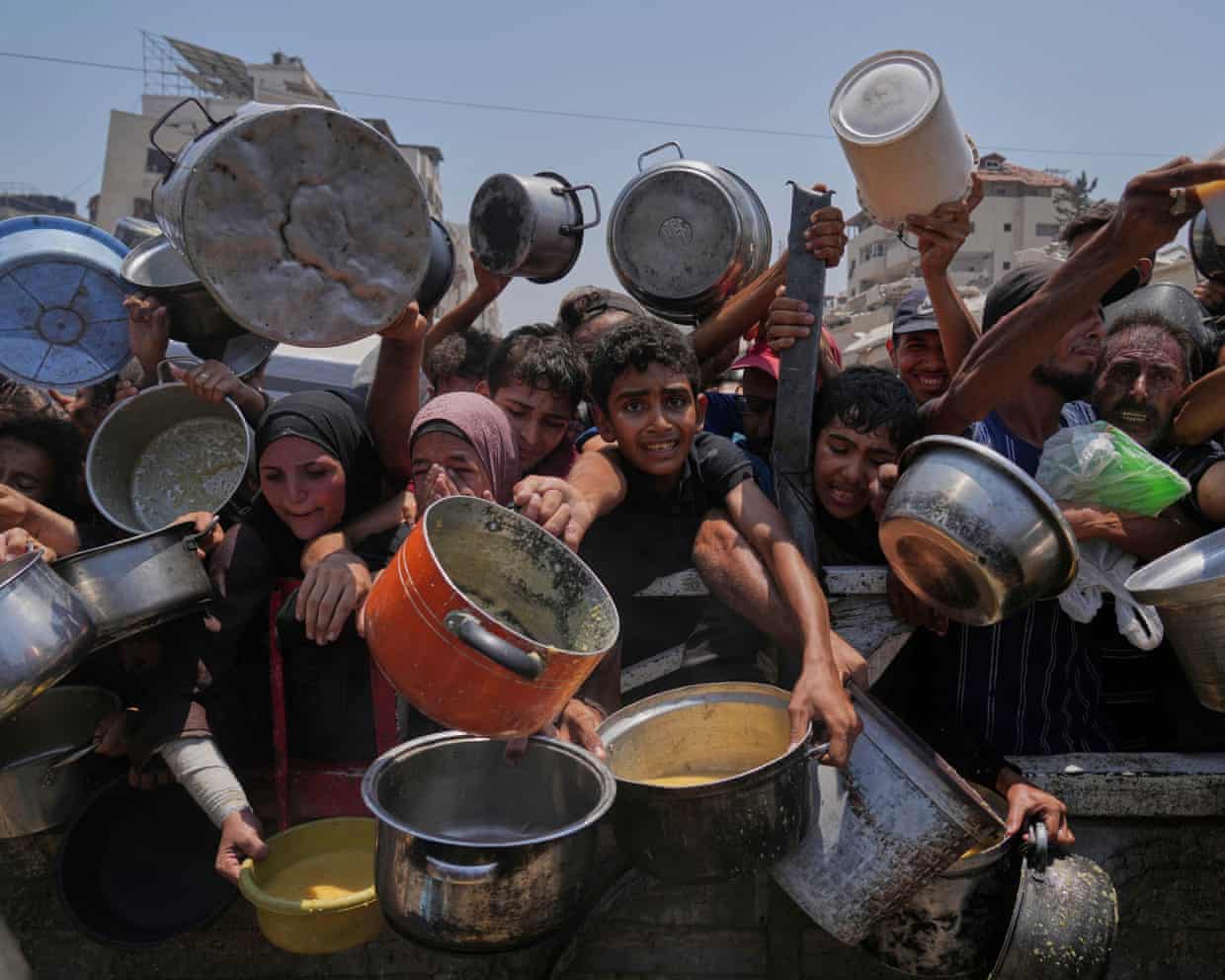At least 57 people were killed in Gaza over a 24-hour period, with many casualties resulting from Israeli airstrikes and gunfire directed at civilians seeking aid. This surge in violence coincides with the apparent collapse of ceasefire negotiations, exacerbating the already dire humanitarian crisis affecting the region. The ongoing situation has led to widespread starvation, with humanitarian agencies attributing this crisis to Israel’s blockade of Gaza.
As desperation mounts, crowds frequently gather near the Zikim crossing into Israel, waiting for aid trucks to arrive. Tragically, reports indicate that individuals have been shot while waiting for assistance. According to the Palestinian news agency, at least 124 people, including 84 children, have died from starvation in Gaza. On Saturday morning alone, an infant succumbed to malnutrition, marking the third baby to die from hunger within just 24 hours.
Israeli airstrikes further contributed to the toll, with four individuals killed in an apartment building in Gaza City on Saturday. This latest violence comes after the United States and Israel withdrew their negotiating teams from ceasefire talks in Doha on October 26, 2023. U.S. President Donald Trump attributed the breakdown in discussions to Hamas, asserting that the group lacks genuine interest in reaching a deal. In response, Israeli Prime Minister Benjamin Netanyahu indicated he is considering “alternative options” to ceasefire negotiations, though specifics were not provided.
Hamas officials disputed claims of their responsibility for the stalled negotiations, suggesting that the withdrawal of U.S. and Israeli teams was a tactical maneuver. Senior Hamas official Taher al-Nunu expressed surprise at Trump’s comments, noting that progress had been made on certain negotiation points prior to the breakdown.
The two parties remain at an impasse over key issues, including the positioning of Israeli troops during a ceasefire, aid access in Gaza, and the exchange of Palestinian prisoners for Israeli hostages. As discussions falter, the humanitarian crisis intensifies. The World Food Programme warned that over 90,000 women and children are in “urgent need” of treatment for malnutrition, with reports indicating that one in three residents of Gaza are going days without food.
Rania al-Sharahi, a 44-year-old mother of six who is pregnant, shared her harrowing experience, stating she has lost 22 kg while struggling to provide for her children. “As for bread, we don’t even talk about it anymore. It has become a luxury,” she lamented, revealing her family has gone without bread for over ten days. Al-Sharahi and her children have not visited aid distribution points due to fears of violence, instead relying on the generosity of neighbors for survival.
Israel has sought to downplay the severity of the starvation crisis, suggesting that a coordinated media campaign is distorting its image. It claims that aid is available for distribution but blames the United Nations for inefficiencies. However, the UN has countered that logistical barriers imposed by Israel make it nearly impossible to distribute aid effectively. The majority of the UN’s requests for assistance have reportedly been denied, leading to significant delays in aid delivery.
Despite claims of allowing 4,500 aid trucks into Gaza since the easing of a total blockade in May, this figure translates to approximately 70 trucks per day, which the UN describes as insufficient compared to pre-war levels of 500 trucks daily. Global scrutiny has intensified as images of starving children circulate, prompting Israel to announce the resumption of airdropped aid for the first time in months. Jordan has agreed to conduct these airdrops, primarily delivering food and milk formula.
In the UK, Prime Minister Keir Starmer stated he is “working urgently” to facilitate British aid into Gaza, amidst growing calls for the recognition of a Palestinian state. Meanwhile, Philippe Lazzarini, the head of the United Nations Relief and Works Agency (UNRWA), criticized the airdrops as a “distraction,” asserting they do not address the root of the starvation crisis and can even endanger lives.
On the diplomatic front, France announced its intention to recognize a Palestinian state at the upcoming UN General Assembly in September, a move aimed at expressing disapproval of Israeli actions in Gaza. Conversely, Italian Prime Minister Giorgia Meloni stated that Italy would not recognize a Palestinian state at this juncture, calling such recognition “counterproductive.”
Since the onset of Israel’s military operations in Gaza following a Hamas-led attack on October 7, 2023, which resulted in approximately 1,200 deaths in Israel, nearly 60,000 people have reportedly lost their lives in Gaza. The ongoing conflict continues to raise urgent humanitarian concerns, as the international community watches closely for developments in both the ceasefire discussions and the humanitarian crisis unfolding in the region.
